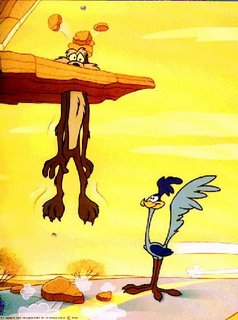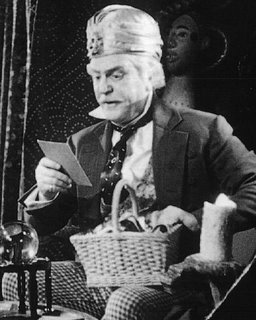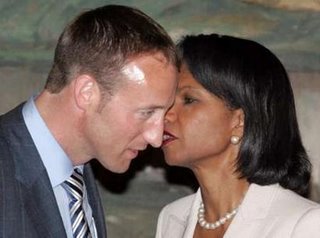Harper said it wasn't the time to discuss government policies.
Harper, Charest don't see eye to eye on gun registry
Also See
Dawson College Shootings
It’s possible that I shall make an ass of myself. But in that case one can always get out of it with a little dialectic. I have, of course, so worded my proposition as to be right either way (K.Marx, Letter to F.Engels on the Indian Mutiny)

| You are a caring and loving individual. You understand people's emotions and you are able to comfort and counsel them.  |

“To be perfectly honest it's a lot of fun to shoot,” said Tony Bernardo, executive director of the Canadian Shooting Sports Association, who also owns a Beretta CX4 Storm. The association, lobbies against tougher gun restrictions.
“The little pistol calibre it comes in gives virtually no recoil. It's very accurate. The firearm is just one of those firearms that's just a lot of fun to spend a day at the range with.”
Gee and in college cafeterias too. Very accurate Gill shot 20 people with it, killing one.In probalby under a minute.And it gets better
“Those people who own them are a little horrified at this particular moment. Nobody envisions that this thing would be used in that manner. That's not what it was made for.”
Excuse me what the hell was it made for ...oh yeah shooting cans. Right, gimme a break.
A tip o' the blog to Cowboys For Social Responsibility for this.

The Shield of Achilles: War, Peace, and the Course of History
" A new form of the State — the market state – is emerging from this relationship in much the same way that earlier forms since the 15th century have emerged, as a consequence of the sixth great epochal war in modern history.
The “market-state” is the latest constitutional order, one that is just emerging in a struggle for primacy with the dominant constitutional order of the 20th century, the nation-state. Whereas the nation-state based its legitimacy on a promise to better the material well-being of the nation, the market-state promises to maximize the opportunity of each individual citizen. The current conflict is one of several possible wars of the market-states as they seek to open up societies to trade in commerce, ideas, and immigration which excite hostility in those groups that want to use law to enforce religious or ethnic orthodoxy.
A state that privatizes most of its functions will inevitably defend itself by employing its own people as mercenaries-with equally profound strategic consequences. "
You enter the ghetto through a warren of decrepit alleys crowded with locals seeking refuge from the hot night air of their cramped homes. Suspicious stares alert you that you have entered Kingston's gangland. But if the local don -- or "area leader," in the polite lexicon of official Jamaica -- has granted you permission to enter, you are safe. Here, news travels like dye in water.
The local gang maintains its own system of law and order, complete with a holding cell fashioned from an old chicken coop and a street-corner court. It "taxes" local businesses in return for protecting them, punishing those who refuse to pay with attacks on property and people. It provides a rudimentary welfare safety net by helping locals with school fees, lunch money, and employment -- a function that the Jamaican government used to perform. But over the last couple of decades, keen to reduce spending, it has scaled back many of its operations, leaving a vacuum. As one kind of authority has withdrawn, another has advanced.
Jamaica's gangs -- each a fluid but cohesive organization with a clearly demarcated territory -- fund their activities partly through their participation in one of the industries in the vanguard of globalization: the transshipment of illegal drugs. Although at first glance the gangs seem to be at odds with the government, the local police frequently cooperate with the dons, whose ruthlessly efficient rule can make the cops' jobs easier. The result is a tenuous quid pro quo: if the dons keep order, the police turn a blind eye to the drug trade. Besides, direct assaults on the gangs are often futile. Even when the police capture dons or their gunmen, convictions are next to impossible to obtain because potential witnesses remain silent out of loyalty or fear. Just as the rise of the modern state generated conventional symbols of loyalty -- flags, anthems, national heroes -- so does gangland culture reflect the new power structure. The dons patronize deejays who celebrate them in song, and huge crowds turn out for the gang leaders' funerals, waving flags that symbolize their rule.
Kingston's gang-controlled neighborhoods are just one result of a growing worldwide phenomenon: the rise of private "statelets" that coexist in a delicate, often symbiotic relationship with a larger state. Large sections of Colombia have gone this way, as have some of Mexico's borderlands and vast stretches of the Andes and the adjoining rain forest. Countries such as Afghanistan and Somalia are more or less governed by warlords, and Pakistan's borderlands submit to Islamabad only when the state's armed forces force them to. Private militias have carved up whole swaths of the Democratic Republic of the Congo and Papua New Guinea, and at one point militias ruled the Solomon Islands. And the list is growing.
Policy debates and the academic literature on international relations have been preoccupied lately by discussions of so-called failed states. Not all cases in which private actors have assumed statelike functions, however, involve chaos or failure.
10:04pm
28457 votes in. 220 polls out of 220.
Unusually strong Conservative last poll (the advance poll).
DiNovo (NDP) 11675 (41.0%)
Watson (LIB) 9387 (33.0%)
Hutcheon (PC) 4921 (17.3%)
de Jong (GRN) 1758 (6.2%)
Gryzyma (FCP) 366 (1.3%)
McIntosh (LP) 162 (0.6%)
Ursomarzo (FP) 111 (0.4%)
Turmel (IND) 77 (0.3%)


He referred obliquely to reports that the killer played a violent computer game and posted angry messages of a dark web site.
"We as a society have trouble squaring our outrage at some of the images we see, some of the messages that are communicated to people - young people, in particular - with our belief in freedom and our desire to avoid censorship," he said.
"However bad these things may be, they do not absolve any of us from our moral responsibility as individuals to act in ways that treat our fellow human beings with decency.
"Whether there's something we can do to control it, I can't tell you that, but I can tell you that nothing excuses what the killer did yesterday."
Now of course there is something the State can do about it...since they already control child porn on the net....and there is no need for a new law even.....one actually already exists it just has to be adapted to violent web sites....Canada Censors Cartoons in particular horror/crime comics.
Offences Tending to Corrupt Morals
Corrupting morals
163. (1) Every one commits an offence who
(b) makes, prints, publishes, distributes, sells or has in his possession for the purpose of publication, distribution or circulation a crime comic.
Definition of “crime comic”
(7) In this section, “crime comic” means a magazine, periodical or book that exclusively or substantially comprises matter depicting pictorially
(a) the commission of crimes, real or fictitious; or
(b) events connected with the commission of crimes, real or fictitious, whether occurring before or after the commission of the crime
Not that I am suggesting that this be done, because the problem is not video games or website, or the internet or computers, it is the psychological problem of the emotional plague. When an individual becomes so out of touch with society they become an enemy of society, whether hiding away in their online fantasy world or in the real life fantasy world of the militias/white nationalist christian underground like Timothy McVeigh, or the world of the Jihadist.
So Harper is right there is nothing the State can do about a social problem of alienation in modern mass capitalist society.
 Gone but not forgotten.
Gone but not forgotten.